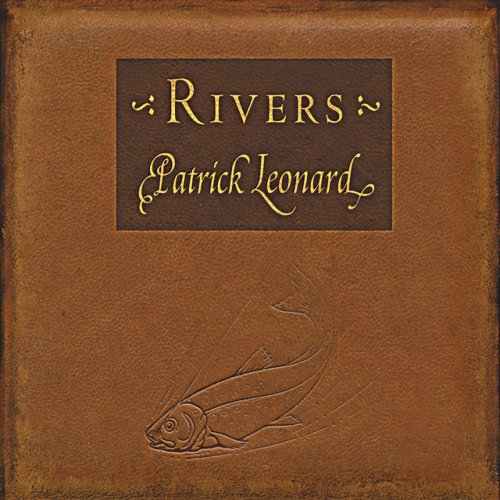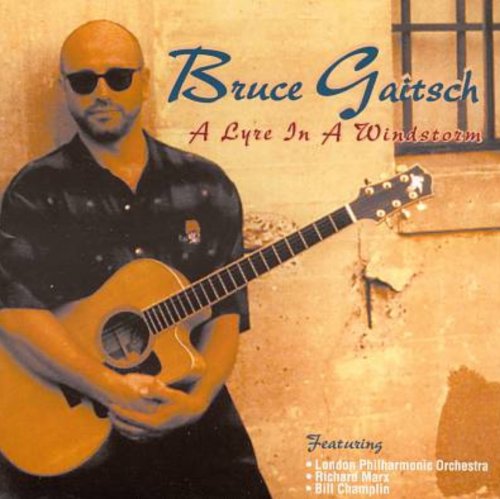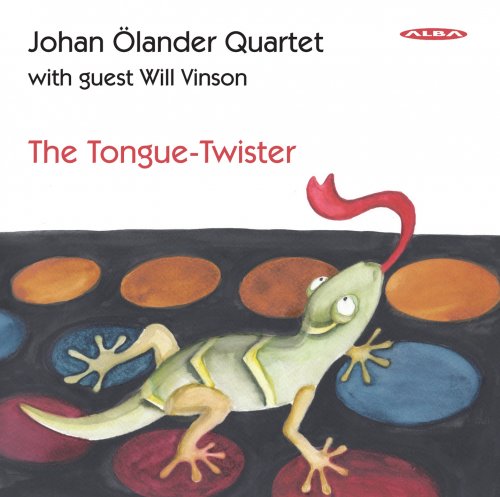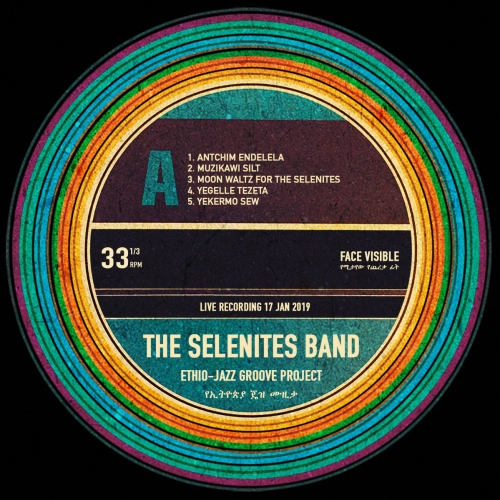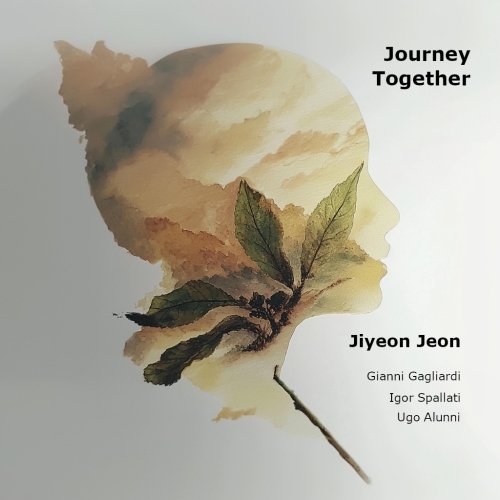Jeffrey LaDeur - Debussy & Rameau - The Unbroken Line (2017)
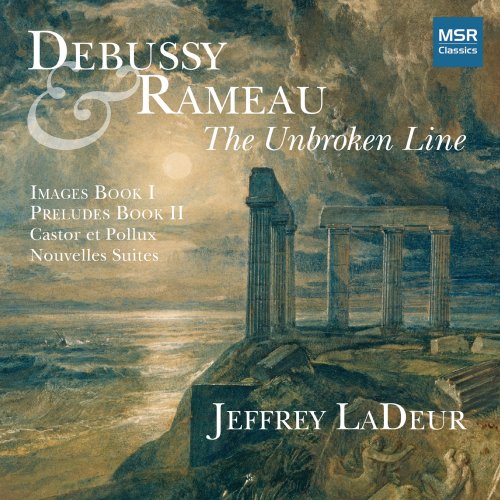
Artist: Jeffrey LaDeur
Title: Debussy & Rameau - The Unbroken Line
Year Of Release: 2017
Label: MSR Classics
Genre: Classical Piano
Quality: flac lossless (tracks)
Total Time: 01:09:38
Total Size: 158 mb
WebSite: Album Preview
TracklistTitle: Debussy & Rameau - The Unbroken Line
Year Of Release: 2017
Label: MSR Classics
Genre: Classical Piano
Quality: flac lossless (tracks)
Total Time: 01:09:38
Total Size: 158 mb
WebSite: Album Preview
01. Castor et Pollux-Tristes Apprets (arr. J. LaDeur)
02. Images, Book I: I. Reflets dans l’eau
03. Images, Book I: II. Hommage à Rameau
04. Images, Book I: III. Mouvement
05. Preludes, Book II: I. Brouillards (Modere)
06. Preludes, Book II: II. Feuilles mortes (Lent et mélancolique)
07. Preludes, Book II: III. La Puerta del Vino (Mouvement de Habanera)
08. Preludes, Book II: IV. “Les Fees sont d’exquises danseuses” (Rapide et léger)
09. Preludes, Book II: V. Bruyeres (Calme – doucement expressif)
10. Preludes, Book II: VI. General Lavine – eccentric (Dans le style et le Mouvement d’un Cake-Walk)
11. Preludes, Book II: VII. La terrasse des audiences du clair de lune (Lent)
12. Preludes, Book II: VIII. Ondine (Scherzando)
13. Preludes, Book II: IX. Hommage a S. Pickwick, Esq. P. P. M. P. C. (Grave)
14. Preludes, Book II: X. Canope (Tres calme et doucement triste)
15. Preludes, Book II: XI. Les tierces alternées (Modérément animé)
16. Preludes, Book II: XII. Feux d’Artifice (Modérément animé)
17. Nouvelles Suites de Pieces de Clavecin: Gavotte et six doubles
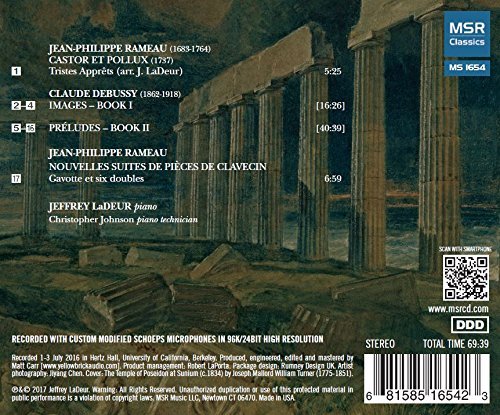
The Unbroken Line - I first learned of Claude Debussy's profound admiration for Jean-Philippe Rameau through Annie Marchand Sherter. In her essay on the origins of (Les Tierces alternées) in Rameau's Gavotte and Six Doubles in A minor, she argues that Debussy composed his penultimate prelude as a seventh double of Rameau's Gavotte, based in turn on 16th century French chansons.
Hearing Debussy's Les tierces as a link in the unbroken line of French music upends the traditional view of the prelude as an enigmatic trifle. And while it may be clear that the motoric figuration derives from the fourth double of Rameau's Gavotte, requiring the performer to play repeated notes, including thirds, by quickly replacing one hand with the other hence alternating thirds, who notices the melody, hidden amidst the figuration, that quotes Rameau's theme note for note? This ciphered tribute is characteristic of Debussy's fascination with the esoteric and attests to the composer's acute awareness of his musical heritage.
It was Sherter, my teacher, who opened my ears to this in her unpublished essay which informs my interpretation. She, in turn, was a student of Vlado Perlemuter and Alfred Cortot, and through her I hear another unbroken line of French musical artists parallel to that of Debussy and his chosen ancestors. This album is inextricably linked to my teacher as much as Debussy is to Rameau, Castor to Pollux. Rather than struggle against the gravitational pull of one's masters, it is possible to embrace lineage and possibility, what Debussy found in Rameau, a tradition filled with far-reaching, almost unparalleled discoveries.
Jeffrey LaDeur enjoys a busy career as soloist, chamber musician and educator. LaDeur's spontaneity, tone color and sense of architecture have distinguished him as an artist of international caliber. Engagements at the Kennedy Center, Shanghai Conservatory, Eastman Theater, Banff Centre and other prestigious venues were followed by an invitation from the Naumburg Foundation to make his Carnegie Hall debut. LaDeur is pianist and founding member of the Delphi Trio, and Founder and Artistic Director of New Piano Collective, an artistic alliance of internationally renowned pianists. As soloist with orchestra, LaDeur maintains a repertoire of more than 40 concertos. Recent performances include appearances with the Oakland Symphony, San Jose Chamber Orchestra Denver Philharmonic, Merced Symphony and members of the South Dakota Symphony. LaDeur is frequently heard in recital at venues such as PianoForte Chicago, Bach Dancing and Dynamite Society, Dakota Sky International Piano Festival. He returns to Weill Hall to culminate his survey of Debussy's solo piano music and its influences and inspirations on the anniversary of the composer's death in March 2018. As pianist of the Delphi Trio, LaDeur has performed at the Great Lakes Chamber Music Festival, Artist Series Concerts of Sarasota, Smithsonian Museum and Orlando Festival in the Netherlands. Dedicatees of William Bolcom's First Piano Trio, Delphi presented its world premiere in 2016. In addition to his activities with the Trio, LaDeur has collaborated with notable chamber musicians, including Robert Mann, Geoff Nuttall and Ian Swensen. After an auspicious debut with the Eastman Philharmonia in Franck's Variations Symphoniques during his first semester of study at the Eastman School of Music, LaDeur completed his Bachelor's degree in piano performance. LaDeur earned a Master's Degree in chamber music from the San Francisco Conservatory, studying with Yoshikazu Nagai and completed additional studies with Robert McDonald. LaDeur received his formative musical training from Mark Edwards and Annie Marchand Sherter, herself a student of Vlado Perlemuter and Alfred Cortot.
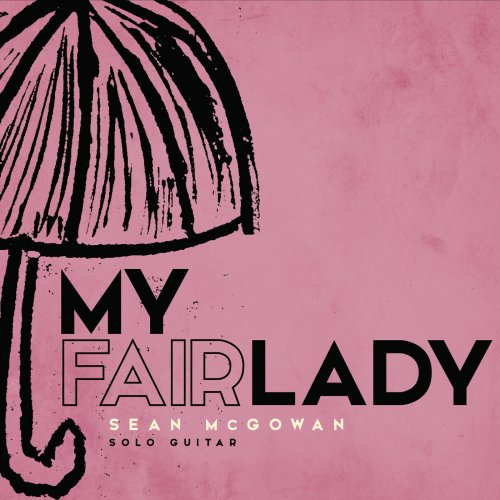
![Berlin Psalm Projekt - The Heavens Declare (2026) [Hi-Res] Berlin Psalm Projekt - The Heavens Declare (2026) [Hi-Res]](https://www.dibpic.com/uploads/posts/2026-01/1767944461_vwe9478zlu24v_600.jpg)
